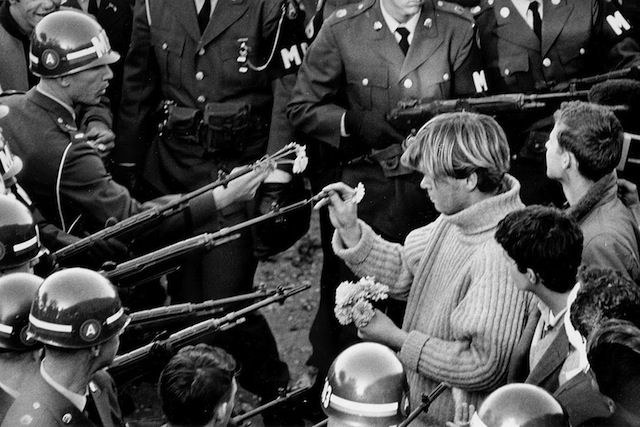A criticism you'll often hear today is that people spend too much time taking photos of their experiences rather than living them. But on the flip side, those photographs serve an important function: by taking photographs, we're able to hold on to our memories, show the rest of the world a glimpse of our lives, and ultimately tell a story.
Everyone should learn a little bit of photography because everyone can benefit from it. Not only is it a fun hobby, but it can even make you grow as a person. Here are five reasons why learning a bit of photography can go a long way no matter who you are.
To Preserve Memories
“Photography is a way of feeling, of touching, of loving. What you have caught on film is captured forever… It remembers little things, long after you have forgotten everything.” (Aaron Siskind)
Holding on to precious memories might be the oldest reason in the book to take photos, and it isn't any less significant today than it was a hundred years ago.
If it's a special day you want to commit to memory -- like a wedding, a birthday, or a reunion -- then taking a beautiful photo allows you revisit that momentous occasion with crystal clear accuracy. Barring unfortunate circumstances, a photograph will be there even when your memory falters.
Even if it's just another day out with your family or friends, taking a photo allows you to preserve a split second moment that you'll be able to look back on fondly.
“Taking pictures is savoring life intensely, every hundredth of a second.” (Marc Riboud)
If you want to take it one step further, you could even commit to taking one photo a day for a year. Trying your hand at a "photo a day" project gives you the unique ability to look back over your year and remember at least one significant moment out of each day in that year.
If you're struggling for inspiration, you can find inspiration and ideas all around you. All you have to do is look.
To Cultivate Creativity
“You don't make a photograph just with a camera. You bring to the act of photography all the pictures you have seen, the books you have read, the music you have heard, the people you have loved.” (Ansel Adams)
No matter what your preferred style of photography is, there's an art to taking photos. Determining your subject, composing your shot, and deciding how to process the image is all part of one large creative process.
Despite the fact that it looks easy, photography is as much a creative outlet as writing, painting, or any other form of artistry. Sometimes the difference between a good and bad photo can come down to something as small as timing:
Even something as simple and mundane as a selfie can be turned into a creative and appealing final image. Take Derek Johnston's selfie in which he appears to be falling, with food flying toward the camera. It took quite a bit of skill and quite a lot of patience, but the whole photograph is a carefully constructed -- and extremely creative -- tableau.
If you're interested in learning a bit more about how to master the art of photography, here are ten online courses to get you started, as well as some great recommendations from Lynda.com.
To Participate in Other People's Lives
“All photographs are memento mori. To take a photograph is to participate in another person’s (or thing’s) mortality, vulnerability, mutability. Precisely by slicing out this moment and freezing it, all photographs testify to time’s relentless melt.” (Susan Sontag)
Yes, photography can sometimes be a lonely activity, but at the same time, taking a photo gives you the opportunity -- albeit briefly -- to be part of someone else's life. Wedding photographers, street photographers, and anyone who has paused for a moment in the street to capture a fleeting image understands this perfectly.
I took the photo above while walking down a pedestrian street in Cairo. I don't know why this man chose to carry that large bowl over his head, but what I do know is that I saw him walking toward me. I snapped the shot, we exchanged smiles -- him fully knowing that I had taken a photo of him -- and quietly walked past each other without saying a word.
Moments like this are why I personally love to take photos. There's a deeply human element to every photograph that allows you to connect with others in a unique and special way.
To See the World Differently
"I began to realize that the camera sees the world differently than the human eye and that sometimes those differences can make a photograph more powerful than what you actually observed." (Galen Rowell)
The more you take photographs, the more you'll notice little things that might go unnoticed by others. This is a distinctly different benefit from the others listed above as those bring with them a kind of immediate gratification. The ability to see things differently only comes with time and practice.
The more you take photographs, the more you'll see the world differently.
While some people might argue that we have become more obsessed with taking photos with our smartphones rather than living in the moment, all it takes is one shot. Don't spend too long behind the lens, otherwise you might actually miss out on all the other interesting shots around you.
"Beauty can be seen in all things, seeing and composing the beauty is what separates the snapshot from the photograph." (Matt Hardy)
No photographer better embodies the concept of seeing things differently than Chema Madoz. The Spanish photographer transforms everyday objects into surreal works of art -- turning gutter grills into dish racks, hair pins into rainy seascapes, and mundane pipes into flutes.
With enough time, photography can unlock new perspectives in every person's eye.
To Tell Stories
"If I could tell the story in words, I wouldn't need to lug around a camera." (Lewis Hine)
They say a picture is worth a thousand words -- a cliche, sure, but it's a cliche for a reason. A single image has the power to convey so much emotion, sometimes even more than a poem or a story. Nowhere is this more evident than among photojournalists.
History is told in these images: the minutes following Martin Luther King's assassination as people point in the direction from which the shot came; one man facing off with a tank in Tiananmen Square; or Bernie Boston's image of a protester placing flowers in the muzzle of a soldier's gun during an anti-Vietnam War rally:
Whether in photojournalism, in street photography, or even in family photos, there's always an opportunity to tell a story. All it takes is a camera and the perfect moment.
Tell Us What You Think
Now it's your turn. Tell us why you take photographs! Or why you think people should put their cameras down and start seeing their world through their own eyes rather than through the lens of a camera. Share with us in the comments below!






